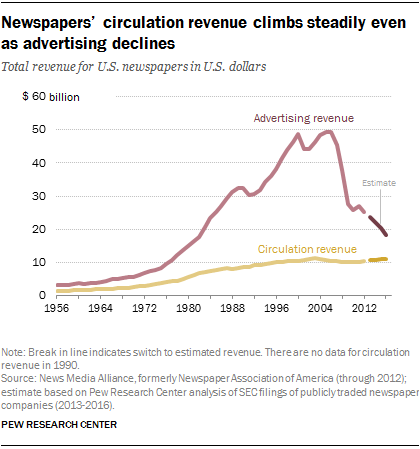Is thinking about monetization a waste of our best minds?
I just recently watched this talk by Jack Conte, musician, video artist, and cofounder of Patreon:
Jack dives into how rapidly the Internet has disrupted the business of selling reproducible works, such as recorded music, investigative reporting, etc. And how important — and exciting — it is build new ways for the people who create these works to be able to make a living doing so. Of course, Jack has some particular ways of doing that in mind — such as subscriptions and subscription-like patronage of artists, such as via Patreon.
But this also made me think about this much-repeated1 quote from Jeff Hammerbacher (formerly of Facebook, Cloudera, and now doing bioinformatics research):
“The best minds of my generation are thinking about how to make people click ads. That sucks.”
I certainly agree that many other types of research can be very important and impactful, and often more so than working on data infrastructure, machine learning, market design, etc. for advertising. However, Jack Conte’s talk certainly helped make the case for me that monetization of “content” is something that has been disrupted already but needs some of the best minds to figure out new ways for creators of valuable works to make money.
Some of this might be coming up with new arrangements altogether. But it seems like this will continue to occur partially through advertising revenue. Jack highlights how little ad revenue he often saw — even as his videos were getting millions of views. And newspapers’ have been less able to monetize online attention through advertising than they had been able to in print.

Some of this may reflect that advertising dollars were just really poorly allocated before. But improving this situation will require a mix of work on advertising — certainly beyond just getting people to click on ads — such as providing credible measurement of the effects and ROI of advertising, improving targeting of advertising, and more.
Another side of this question is that advertising remains an important part of our culture and force for attitude and behavior change. Certainly looking back on 2016 right now, many people are interested in what effects political advertising had.
So maybe it isn’t so bad if at least some of our best minds are working on online advertising.
- So often repeated that Hammerbacher said to Charlie Rose, “That’s going to be on my tombstone, I think.” [↩]